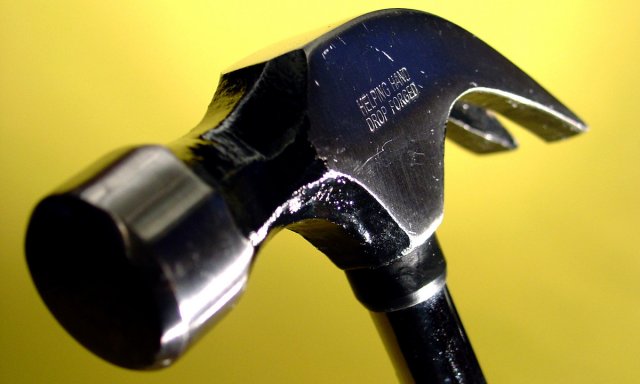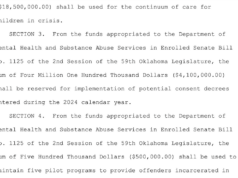

Oklahoma’s felony statutes have changed significantly in recent years, but many people are still dealing with the negative effects of those laws.
Last month, we read about Caron McBride, of Texas, who discovered during a routine trip to adjust the name on her driver’s license that there was an outstanding felony warrant for her from Cleveland County owing to a VHS tape of Sabrina the Teenage Witch that wasn’t returned to Movie Place, in Norman, more than 20 years ago.
Her story became national news, eliciting jokes like “Be kind, rewind, or go to jail,” but the implications of a felony can be very serious. McBride told KFOR that she has been rejected without reason for several jobs over the years, and she now believes it was because this felony embezzlement charge came up on background checks. (The Cleveland County District Attorney’s Office has now dismissed the case, but McBride will still need to get the charge expunged to remove it from her record, Fox 25 reported.)
How many of us, like McBride, have been guilty of an overdue rental or library book? Imagine facing a possible felony charge.
Thankfully, the Oklahoma state statute used to charge McBride with embezzlement for willfully and fraudulently failing to return personal property was repealed in 2002. Fourteen years later, in November 2016, it took a vote of the people to pass State Question 780 and raise the felony theft threshold in Oklahoma to $1,000.
Currently, lawmakers are considering Senate Bill 334, which would increase the time period over which retail larcenies could be aggregated into felonies from 90 days to 180 days. This would effectively overturn the will of the 58 percent of voters who approved the SQ 780 by leaving more people open to unnecessary felony charges, and it would be a significant step backward for criminal justice reform in Oklahoma.
Overcriminalization is in no one’s best interest
According to an Oklahoma State Bureau of Investigation report released in 2020, larceny crimes are down since the passage of SQ 780. In 2019, 53 percent of larceny offenses have been for property valued at less than $200.
McBride’s story highlights the critical nature of the criminal justice reform work underway in Oklahoma, but it also underscores how far we have come. At Right on Crime, we have worked for 14 years to enact public policy that prioritizes public safety and the understanding that overcriminalization does not reduce the crime rate. We have worked — and continue to work — on passing cost-effective policies that also enhance public safety. We want a prison system that incapacitates dangerous offenders and career criminals, not one that makes nonviolent, low-risk offenders a greater risk to the public upon release than they were before they entered.
It is in no one’s best interest to send people to prison for low-level, nonviolent crimes — not the individuals, not their families, and not the taxpayers. Furthermore, raising the felony theft threshold and decreasing the time period for aggregating offenses has afforded more individuals the opportunity for rehabilitation and to become productive members of society.
These changes have not been easy. It has taken leadership from both Republicans and Democrats to stand up and say that, in Oklahoma, we will not tolerate placing a felony label on people who pose no threat to public safety and the rule of law. It has taken leadership that believes in second chances and in offering alternatives to those who find themselves involved with the criminal justice system.
We cannot afford to take two steps backward
McBride’s story is a cautionary tale and a reminder that there is still work to be done. Oklahoma’s tough-on-crime past has made it hard for us to edge out of the top spot for per-capita incarceration. Until our criminal justice system is calibrated to reserve prison beds and felony charges for those who pose a credible threat to its citizens, our system will be nothing more than a hammer looking for a nail. There will be more “felons” like McBride.
We cannot afford to take two steps backward with policy like SB 334.
We need only to look back to when failure to return a VHS tape could result in someone being labeled a felon to see the importance of continuing to move forward with reforming our justice system.




















